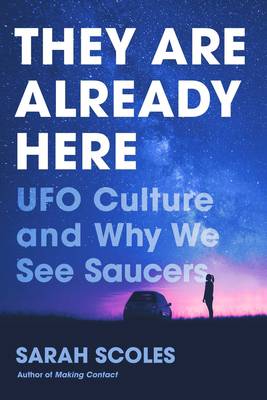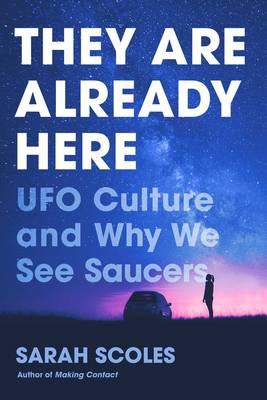
- Afhalen na 1 uur in een winkel met voorraad
- Gratis thuislevering in België vanaf € 30
- Ruim aanbod met 7 miljoen producten
- Afhalen na 1 uur in een winkel met voorraad
- Gratis thuislevering in België vanaf € 30
- Ruim aanbod met 7 miljoen producten
Zoeken
€ 25,45
+ 50 punten
Uitvoering
Omschrijving
An anthropological look at the UFO community, told through first-person experiences with researchers in their element as they pursue what they see as a solvable mystery--both terrestrial and cosmic. More than half a century since Roswell, UFOs have been making headlines once again. On December 17, 2017, the New York Times ran a front-page story about an approximately five-year Pentagon program called the Advanced Aerospace Threat Identification Program. The article hinted, and its sources clearly said in subsequent television interviews, that some of the ships in question couldn't be linked to any country. The implication, of course, was that they might be linked to other solar systems. The UFO community--those who had been thinking about, seeing, and analyzing supposed flying saucers (or triangles or chevrons) for years--was surprisingly skeptical of the revelation. Their incredulity and doubt rippled across the internet. Many of the people most invested in UFO reality weren't really buying it. And as Scoles did her own digging, she ventured to dark, conspiracy-filled corners of the internet, to a former paranormal research center in Utah, and to the hallways of the Pentagon. In They Are Already Here we meet the bigwigs, the scrappy upstarts, the field investigators, the rational people, and the unhinged kooks of this sprawling community. How do they interact with each other? How do they interact with "anomalous phenomena"? And how do they (as any group must) reflect the politics and culture of the larger world around them? We will travel along the Extraterrestrial Highway (next to Area 51) and visit the UFO Watchtower, where seeking lights in the sky is more of a spiritual quest than a "gotcha" one. We meet someone who, for a while, believes they may have communicated with aliens. Where do these alleged encounters stem from? What are the emotional effects on the experiencers?
Specificaties
Betrokkenen
- Auteur(s):
- Uitgeverij:
Inhoud
- Aantal bladzijden:
- 304
- Taal:
- Engels
Eigenschappen
- Productcode (EAN):
- 9781643137650
- Verschijningsdatum:
- 8/06/2021
- Uitvoering:
- Paperback
- Formaat:
- Trade paperback (VS)
- Afmetingen:
- 137 mm x 208 mm
- Gewicht:
- 272 g

Alleen bij Standaard Boekhandel
+ 50 punten op je klantenkaart van Standaard Boekhandel
Beoordelingen
We publiceren alleen reviews die voldoen aan de voorwaarden voor reviews. Bekijk onze voorwaarden voor reviews.











